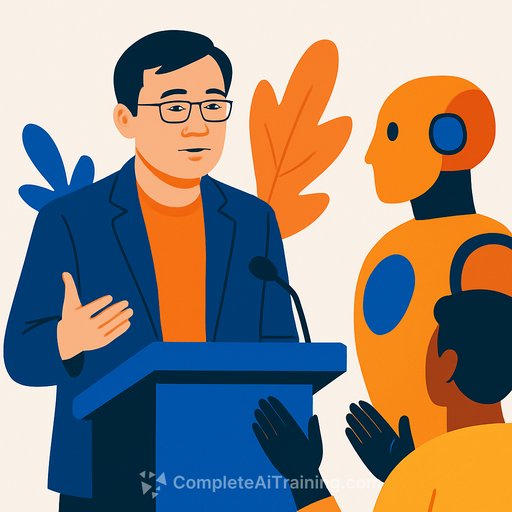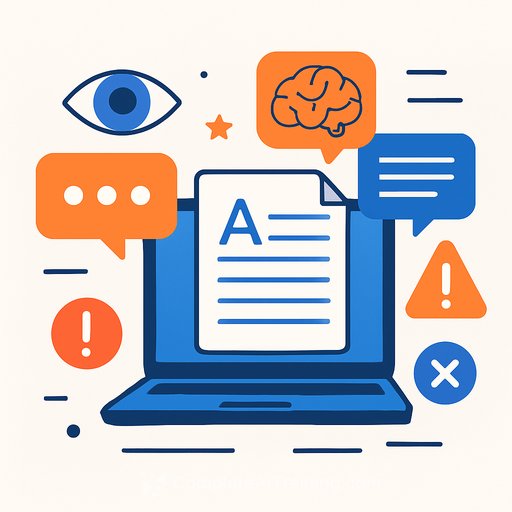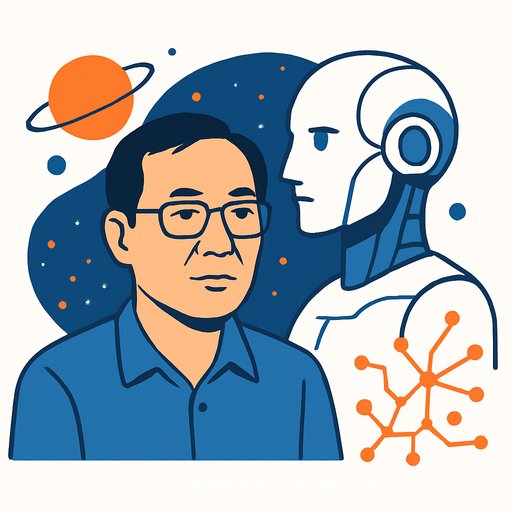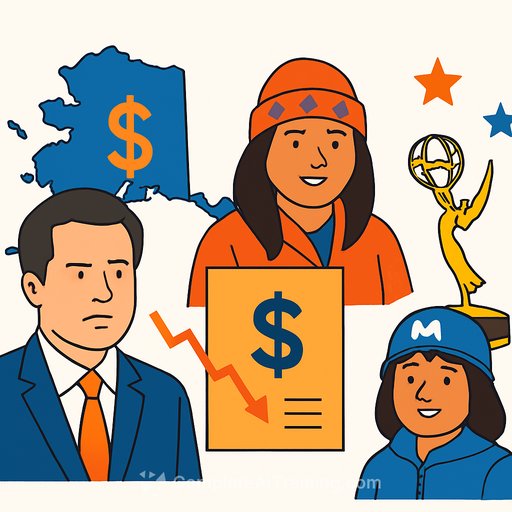Ken Liu on AI, "Modern Mythology," and Practical Lessons for Working Writers
Asked whether tech moves so fast that science fiction can't keep up, Ken Liu smiled and said the quiet part out loud: science fiction isn't about prediction. "What I aim to do as a science fiction writer is create 'modern mythology.' I treat machines merely as symbols." That shift in focus-from forecasting to meaning-making-is the move many writers need right now.
Liu was in Seoul on the 15th for the MCT Festival in Magok, his first visit to South Korea. Known for "The Paper Menagerie," he has won the Hugo, Nebula, and World Fantasy Awards. A Harvard literature graduate and former Microsoft programmer, attorney, and IP specialist, he began publishing in 2002 and later chose the full-time writer's path. "It required financial sacrifice, but I made the decision because writing is important and meaningful to me."
AI, art, and where writers should stand
Liu acknowledged the core tension many of us feel: "It's undeniable that AI has advanced by appropriating artists' intellectual creations." Yet he refused to stop there. He's interested in the new kinds of art that could emerge-forms humans alone might not reach.
That posture is useful for working writers: hold two truths at once-protect human work and explore new creative structures. Treat AI neither as a savior nor a villain. Treat it as material.
Inside the next novel
Liu's upcoming novel, "All That We See or Seem," arrives in the U.S. next month. He traced its spark to a moment of daydreaming: a character named Julia Z appeared and challenged him. "You're completely wrong about AI. The problem isn't machines becoming intelligent and conscious, but humans treating each other as mere AI, not human." That idea became the spine of the book, set for domestic release next summer.
Modernity as a story engine
Liu keeps returning to one question: What is modernity? His short stories include "Beidou," which references Admiral Yi Sun-sin's exploits, and "Knot-Tying," inspired by Hangeul. He noted that each nation's path to modernity is unique, and that South Korea reached it in a very short time through immense effort and sacrifice. For writers, this is a prompt: treat modernity not as a backdrop, but as the conflict.
Practical takeaways for writers
- Use machines as symbols. Don't let tech be a gimmick. Pick one technology and make it stand in for a human tension-status, control, memory, or grief.
- Write modern myths. Codify the beliefs and rituals of now: feeds, metrics, contracts, nonhuman collaborators. Ask: what do people worship, fear, or refuse to see?
- Let character voice lead. Try Liu's "Julia Z" move: freewrite a dialogue with a character who disagrees with you about AI. Follow their logic until it surprises you.
- Frame the ethical conflict clearly. Instead of "AI vs. humans," try "institutions using AI to reduce people to data vs. people insisting on dignity." Better stakes, better drama.
- Cross-pollinate your background. Liu draws from code, law, and history. List three fields you know; pull one concept from each into your current draft.
- Prototype with short fiction. Test a myth, symbol, or voice in 2,000-4,000 words. Publish, gather feedback, iterate.
- Localize modernity. Interview someone older about "how things changed here." Build a scene from a single concrete detail they share.
- Use AI as a drafting partner, not a replacement. Let it suggest structures, alt phrasings, or counterarguments. Keep a voice guide so your prose stays yours.
Prompts to start this week
- "The machine is only a mirror." Write a scene where a device reveals a character's secret belief about worth.
- Two coworkers treat each other like bots-transactional, scripted-until one glitch exposes a buried grief.
- Pick a national "before/after" moment. Write a 1,500-word story that captures the cost of that shift in a single household.
- Give an AI system a human superstition. Show how that superstition changes its output-and a user's life.
Further reading and useful links
- Hugo Awards and Nebula Awards for context on Liu's accolades.
- Practical AI tools for copywriting if you want to build a lean, ethical AI workflow that still keeps your voice front and center.
Your membership also unlocks:






